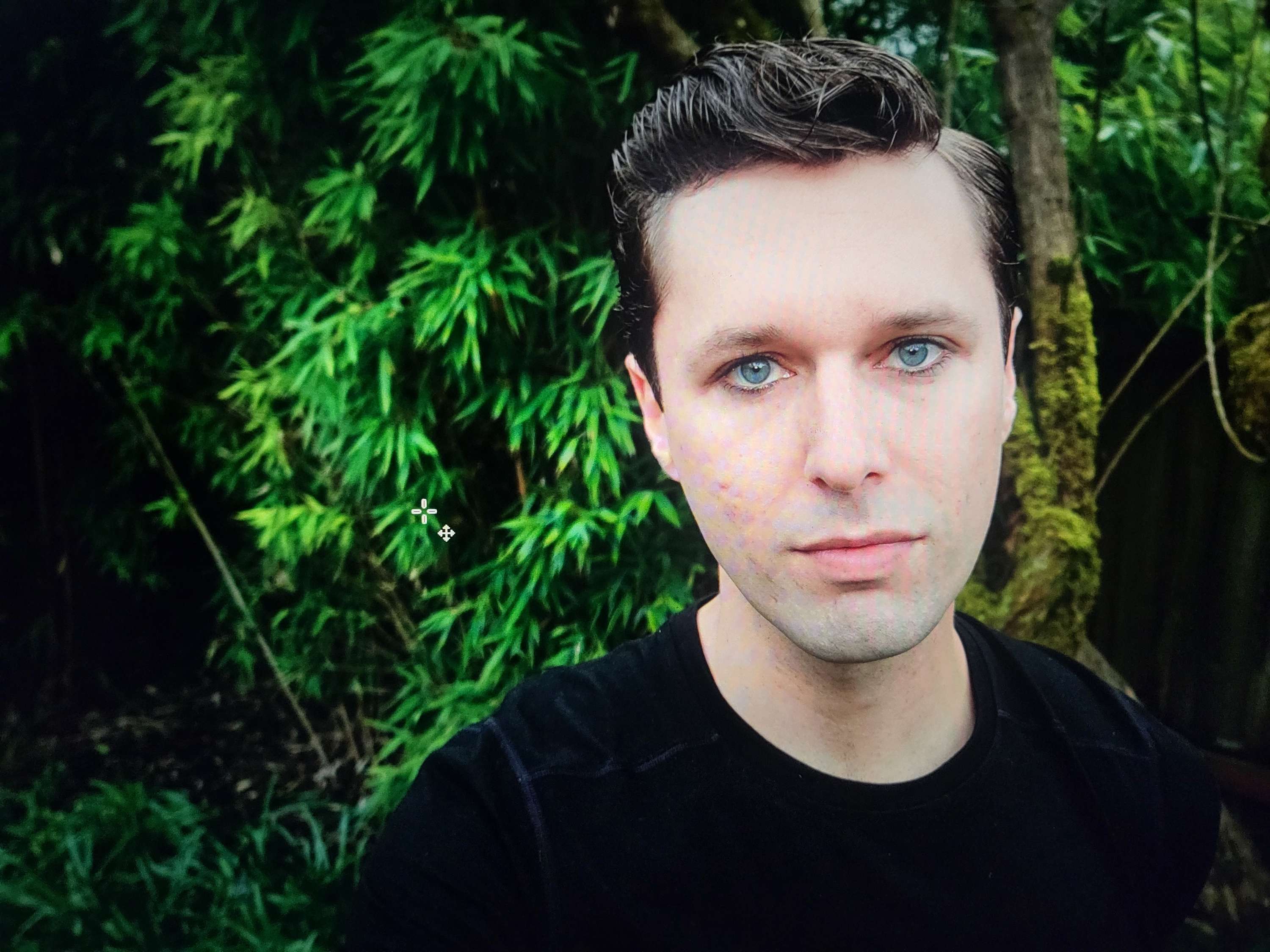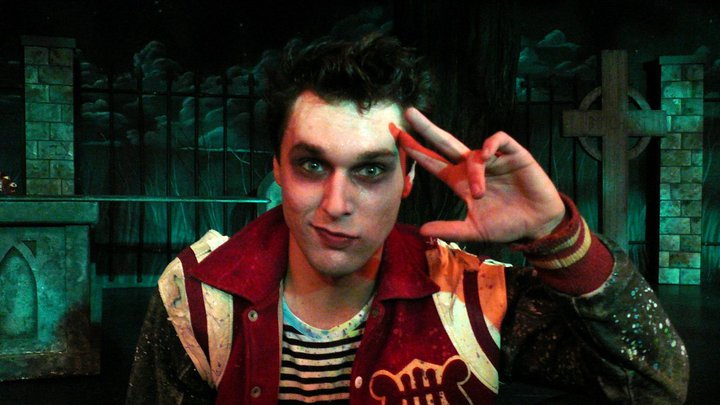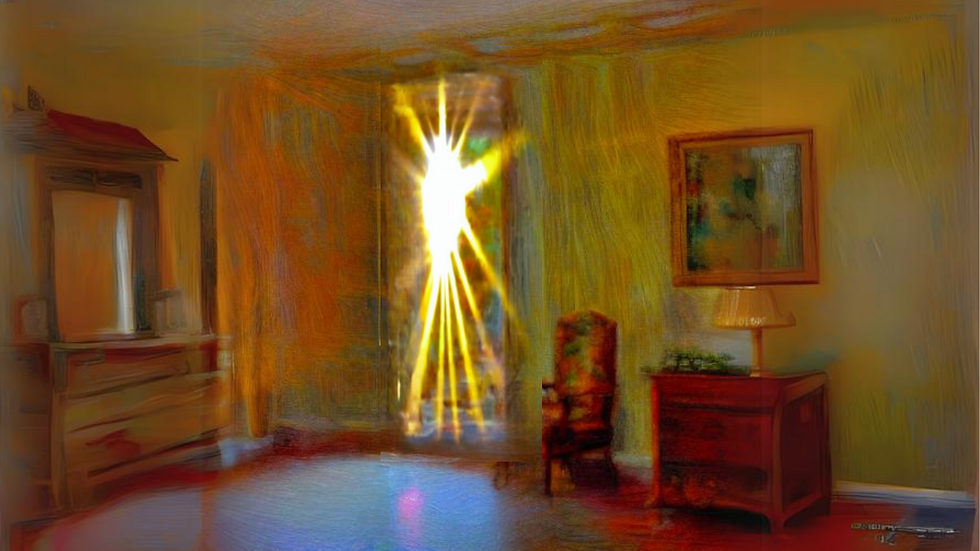Locus of Control: Reclaiming Our Inner Fire 🔥
- daniel jacob self

- May 16, 2023
- 9 min read
Updated: Jun 10, 2024
How do we move from a place of authentic inner ambition, rather than running away from the shame of failure?
👋 Welcome to humanBeing. Where we gather to practice being more skillfully, creatively human together — not toward some impossible ideal of perfection — but toward greater authentic connection.
The audition is over. Which is amazing because now I can go back to drinking and eating and sleeping all day.
For the past four days since I got the email from my agent I've been jogging and stretching every morning, lifting weights, eating only nutrient-dense salads and drinking nothing but throat coat tea and coconut water after my twenty minute steaming-hot-shower vocal warmups while desperately working to memorize the scenes and songs that have been sent to me.
By the morning of the audition, I feel... cleaned out.
Hollow and polished.
Schwing! might be the accompanying sound effect.
But now it's done.
I went into the audition room, shaking and beaming... Who knows how I sounded? Who knows how I felt? Who cares? I did it. Avoided the shame that would come if I hadn't. And now it's over.
I immediately jump on the train back uptown, relieved and looking forward to collapsing again until I get the next call...
👆 For nearly a decade, this was my entire life... and by any normative standards, I was quite successful.
Today's piece explores identifying a crucial distinction surrounding how we engage with the world around us...
On one hand, we have the sometimes crushing weight of expectations: the panic of not wanting to let others down, the fear of not living up to our full potential, the shame of failure — as defined and dictated to us by the Overculture*.
On the other hand, we have that deep, sometimes quiet flame of inner ambition: the spark of creativity drawing us toward what it is we're most perfectly aligned to do, our calling, our purpose, our vocation — that inner voice lifting our eyes to the horizon, to the peak of that mountain in the distance and whispering to us: What would it feel like from up there? Wouldn't it be special if we could...
How much of the action of our day-to-day lives originates from a desire to avoid disappointing ourselves and those around us... rather than a desire to achieve that which is calling to us...
How might we practice moving more often from that Inner Flame, rather than that Outer Shame?
The Emergent, rather than the Obligatory?
👇 click
❓ Why this? Why Now?
🏫 When I received my MA in Somatic Psychology, I went into massive debt.
Looking back now, I realize that what made that experience so meaningful for me was having the opportunity to study, grow, and engage with others who believe practicing being more skillfully human together contributes to the sort of healing that can cause meaningful, positive change in the world.
None of us should have to go into debt for that experience.
So I created humanBeing. 🤲

Perform // Crash
👇 click
❣️ The Importance of Positioning Myself in My Work
Part of what I hope to do, in meeting you here in this digital space, is to deconstruct the idea of me being some anonymous expert voice doling out advice.
Instead, I want to talk to you about who I am, what I've experienced, and what I've learned along the way in the hopes that it might contribute to you feeling more empowered to share, to reflect, and to connect to your own story, to see what resonates and what differs...
Before I found my calling working in Somatic and Restorative Facilitation, I was a professional musical theatre dancer. My whole life was devoted to measuring up to the bar of being cast in a Broadway show.
I'm going to write a whole piece on this in the future — but for now, the short story is: having my entire being constricted so tightly around this one single measure of failure or success led to a pattern of high performance followed by crashing, numbing out, and isolation.
I know I'm not alone in this experience.
It's a painful life experience that many others share in silence, especially those who work within an industry so hyper fixated on reaching a goal with such externally dictated measures of achievement.
👇 click
🤔 What about you?
What ways might you experience this external measure of achievement in your own life and career?
Maybe pause to take a note or sit with this for a moment before reading on...
We'll come back to this at the end!
I love dance. I love theatre. They will always be a part of who I am. And I had some incredible experiences of success and triumph on the stage. But it took me years to realize that the main fuel powering the majority of what I did throughout my career — during the highs as much as the lows — came from a desire to avoid the shame I would feel were I to fail to do it.

Internal v External Locus of Control
The Seesaw of Self Agency
American psychologist Julian Rotter came up with this concept of an Internal vs an External Locus of Control.
Locus meaning focus, or a center of concentration.
I first came across this concept in a really powerful book on trauma healing called Nurturing Resilience by Kathy L. Kain and Stephen J. Terrell. According to Kain & Terrell,
"Those with a strong internal locus of control tend to believe they’re able to influence the outcome of their experiences, take responsibility for their actions, and take less interest in the opinions of others. They also tend to be high achievers, and attribute negative outcomes to their own failings. Those with a strong external locus of control tend to believe that life is controlled by others, or by external elements they cannot influence, such as fate or luck, and tend to blame others for what happens in their lives. They may also have a stronger sense of faith in letting outcomes rest in the hands of others."
I've always imagined this concept like a fulcrum — a seesaw — with our will & agency on one end and internalized societal messaging on the other... The locus of control has to do with our experience of the balance of those forces:
Does our authentic desire to manifest something meaningful into the world have more sway, more weight, than those dictated external measures of success (an internal locus of control)?
Or are those forces — those beliefs about our worth that we swallowed from the outside world — do they feel far greater, heavier, than our own true ambitions (an external locus of control)?
And how the heck do we tell the difference?
👇 click
🧘🏾 Time for a quick Body Break!
See how it might be feel to pause for a moment and check in with your breathing... maybe a fuller breath might feel nourishing.
Perhaps your body wants to wiggle or stretch, tense up or relax... maybe your body would like some water or something to eat.
If you allow your attention to drift away from the screen for a moment, see if something in your environment catches your attention — maybe something alive, like a person, pet, or plant, or else maybe the way the light strikes a surface — or perhaps your attention is drawn inward, to allow your eyes to close and take in the wonder of that dark space behind your eyelids where only you can ever truly go.
Take your time with this exploration... And when you're ready...
Onward! 🎉
As babies, an External Locus of Control is largely all there is.
We are almost completely at the mercy of the care those around us decide to offer, so it's a pretty good survival mechanism, figuring out what behaviors are most likely to elicit the most care.
As we grow and start to feel loved and cared for, we can then begin the developmental process of internalizing our locus of control.
If however, we don't feel that love and care due to neglect or other forms of trauma, we can fall into what Kain & Terrell call defensive accommodation: taking on the beliefs and feelings of those around us as a means of preserving our connection to them.
Sound familiar? It certainly did to me.
But this doesn't just happen on the individual level!
Like most things in this world, it seems to be fractal.*
As a deeply social species, cultural belonging is a matter of survival... To be rejected by our community is to be unable to survive (from our evolutionary brain's perspective). So understanding the expectations our culture has of us and living up to them is something our nervous system has a deep, survival-oriented stake in.
Given this species-wide reality, what does that mean for us now, currently living in such an ill culture: a culture of impossible expectations, entrenched violent ideologies originating in conquest and traumatic dehumanization?
A quote which I'm sure I will reference quite often in these pieces is from philosopher Krishnamurti:
It is no measure of health to be well-adjusted to a profoundly sick society.
Yet this puts us in a tricky position: to drink the poison everyone else is drinking is to, well, poison ourselves! But to reject it is to risk being rejected in turn by the Overculture* within which we have grown up. It's a nervous system catch-22!

So what can we do? — Reclaiming Our Inner Fire 🔥!
Well, as with most areas wherein we wish to effect change, it seems to begin with deepening our awareness.
Examining what beliefs are swimming around in our heads that we don't necessarily believe in believing! Someone close to me once described these damaging beliefs as
"...living in my head without an invitation; and trashing the place!!!"
❗️ Practice...
I'm going to be launching the humanBeing Community Circle — which will include an interactive, imaginal, embodied, creative Practice specifically designed to explore this theme — very soon! If you'd like me to let you know when that's available, make sure you've signed up with your email at the bottom of the page! I can't wait to see you there!

One Final Musing in the Realm of Deconstructing Binaries
Finally, I want to briefly return to that initial quote about the locus of control from Nurturing Resilience because I think there's something subtle and important there that might easily be overlooked.
At some point in the majority of my my work in Somatic and Restorative Facilitation with individuals, relationships, families, and groups, we end up surfacing the issue of false binaries: overly simplified ways of understanding the world, ourselves, and each other which reduce complex, nuanced realities to black-and-white 'either-ors.' In my experience these false bianries leave everyone holding far less of the fullness of our own and each others' humanity than we all deserve (more on this in a forthcoming piece!).
In service to my commitment to help expand these false binaries by bringing more nuance and complexity to our conversations — and though I've spent the majority of this piece lauding the virtues of moving from the internal locus of control — let's take a look at that quote from Nurturing Resilience one more time:
Those with a strong internal locus of control tend to believe they’re able to influence the outcome of their experiences, take responsibility for their actions, and take less interest in the opinions of others. They also tend to be high achievers, and attribute negative outcomes to their own failings. Those with a strong external locus of control tend to believe that life is controlled by others, or by external elements they cannot influence, such as fate or luck, and tend to blame others for what happens in their lives. They may also have a stronger sense of faith in letting outcomes rest in the hands of others.
Notice that a part of having a strong internal locus of control can include attributing negative outcomes to one's own failings, rather than honoring the sometimes insurmountable power of external forces. Whereas, having a stronger external locus of control can not only mean feeling the pressure of outside forces but also the power of them. It can allow for greater access to a stronger sense of faith and luck. It can even help us in the oft times tricky endeavor of turning responsibilities over to others: a powerful part of cultivating greater interdependence (again, more on this soon!).
Could this greater perception of external power potentially lend itself to a curse-the-gods sort of helplessness? Sure. But properly contextualized, it also has the potential to offer us a greater sense of peace: surrender-to-that-which-is-greater-than-us, rather than defeat.
In fact, Kain and Terrell speak to this:
The danger of focusing too exclusively on the internal locus of control can be — ironically —risking perpetuating a whole other form of internalized social messaging: the bootstraps paradigm. Thereby denying the structural impediments and environmental influences which, if not acknowledged, grow in their power to impede our ability to manifest our greatest purpose in this world.
So as with all things... a balance there.

🕐 Time For Your Wisdom! 🦉
The part I'm most excited about!!!
My goal in creating these pieces is to cultivate community around the ideologies and practices that have contributed to deep healing and greater wholeness in my life. To begin nurturing the seed of what I hope to grow – together with you and the rest of my community – into a lifelong place of creative engagement around what it means to be more skillfully human – not toward some impossible perfection, not toward some hyper-productive, hyper-individualist self-improvement addicted never-ending frenzy of impossible ideals to measure up to...
But quite simply toward greater authentic connection
With ourselves

With each other

And with the broader living community here on this awe-inspiring planet.

So...
Sign up below to engage with the Practice as soon as it's released!
And be a part of shaping it from the beginning, by contributing the wisdom of your lived experience so we can grow this digital meeting space to be a place of nurturance, insight, and healing!
Questions for Pondering
And sharing below, if you feel called!
❓ What are you noticing as you finish reading this piece?
❓ Did you write anything down or sit with the question I asked after sharing my story earlier? Has your understanding of your experience of dealing with an external measure of achievement changed at all since reading the rest of the Piece, or does it still feel pretty accurate?
❓ How does this concept of Internal vs External Locus of Control resonate with you? Which includes speaking to how it might not resonate with you!
❓ Is there anything these ideas help you better understand about your own life and experience? Did you have any "Aha" moments as you read thru?
❓ What doesn't get addressed in these ideas that feels important to you not to leave out of this discussion?
I can't express how excited I am to engage more with you!
So until then...
From here
👉 🌌
Thru here
❤️ 👈
To there
🫵
~ Sending so much care! ~
📝 N o t e s
🔼 Overculture. The mainstream, dominant norms from which we unconsciously derive many of our beliefs and standards of behavior. Coined by Dr Clarissa Pinkola Estes.
🔼 Fractal. Existing in distinct yet recognizable forms on the individual, communal, and societal levels. A concept I was first introduced to by the incredible writer, facilitator, teacher, and nonviolent activist Kazu Haga.
All book links are affiliate links that help support my work at no cost to you ❤️For non-Amazon affiliate links, visit daniel jacob's shelf 📚


















Comments